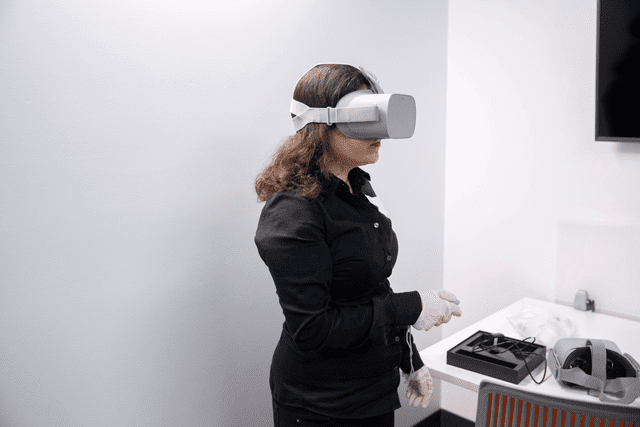The facility will tackle barriers that keep people in poverty.
By Vivian Lopez –
The Salvation Army recently opened its new Bayview Impact Center (BIC) facility in the Bayview neighborhood of San Francisco—one of the city’s poorest areas. The center will provide comprehensive case management services to help clients overcome obstacles that are keeping them in poverty.
“In most Salvation Army social service centers, we help with transactional services, meaning someone comes in…with a need and we give them something,” said Major Darren Norton, Golden State Divisional Commander. “What makes the model of Bayview unique…is the fact that there is no transaction of tangible services that are given. What it is, then, is a much deeper level of case management where we’re really helping to remove barriers of poverty in people’s lives.”
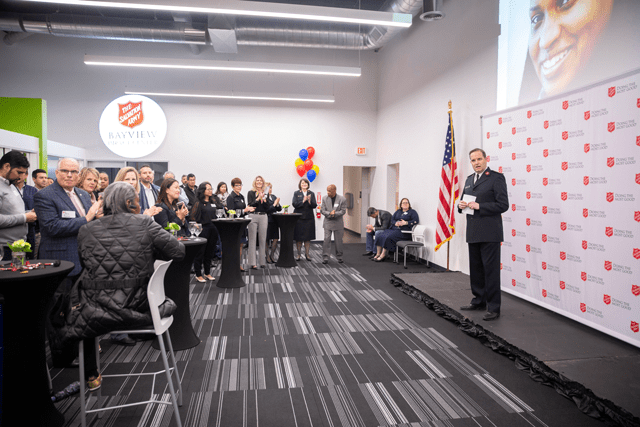
Previously, The Salvation Army leased a smaller building in the neighborhood for the BIC to offer case management services.
“That was an area that was very under-resourced and underserved,” Norton said. “The desire was to get our own building and to really establish a footprint in that community.”
The Salvation Army purchased the new facility building and completely remodeled it. It now features an open area desk space for staff to work with clients, private counseling rooms to conduct client intake interviews, a board room and more.
“It just shows to the Bayview neighborhood that we are committed to them,” Norton said. “It tells the neighborhood and people that live here that we’re putting down roots in this neighborhood. It allows us to drastically expand the work that we’re doing here.”
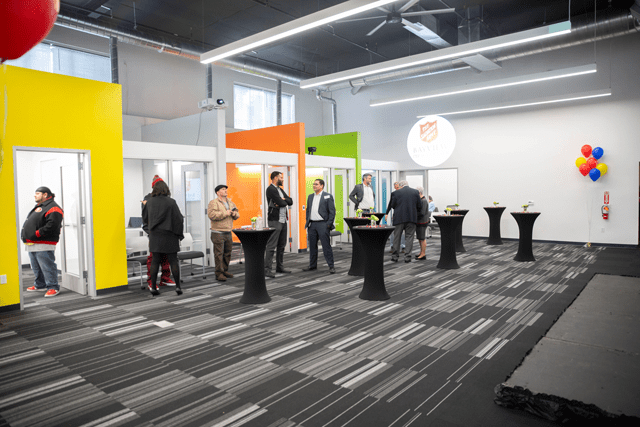
After clients come in for initial assistance at the new center, BIC staffers interview them to determine what is keeping them from escaping the cycle of poverty.
Then, they help them set up a plan to tackle these obstacles, including setting up email accounts; acquiring identification documents such as driver’s licenses, Social Security cards and birth certificates; help in applying for state and federal benefits and assistance; and making sure clients have access to medical services.
“We’re really trying to be there for people in their entirety,” said Trey Hiller, BIC community coordinator.
After this is taken care of, they move on to resolving issues in clients’ pasts—financially and legally. Clients learn how to set up online accounts to access credit and banking reports, Internal Revenue Service tax and wage transcripts, child support cases and more. The center’s caseworkers specialize in financial rehabilitation, refinancing and payment plans, so they can help clients come up with a plan to take back control of their finances.
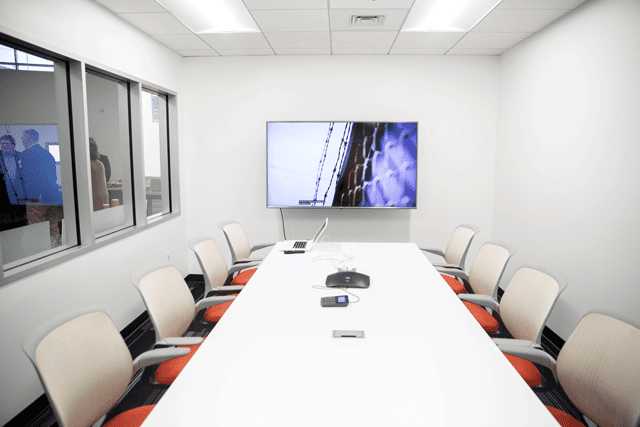
“We’re trying to alleviate and address all those things, while at the same time providing the education and resources for people to make the right decisions,” Hiller said. “This helps to provide people with an understanding of their financial life, while hopefully beginning to get a way forward.”
Employment assistance is also a key aspect of the center. Clients receive General Education Development and High School Equivalency test preparation, resume and cover letter training, mock job interviews, career planning and development guidance, and education on online employment resources such as LinkedIn, Monster and Indeed. BIC also has a partnership with Swinerton, a local construction company, to connect people with workforce development opportunities.
“We really want to get people employed because we feel that is a vital thing for independent living,” Hiller said.
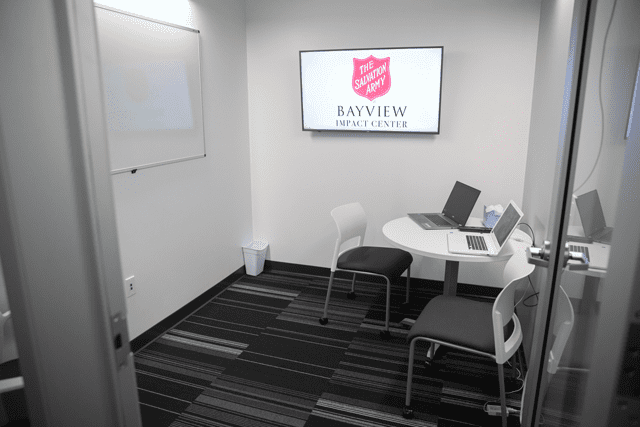
Additionally, caseworkers work with clients to conduct court searches for the status of civil and criminal cases they may have, acquire arrest records, explore avenues for getting records expunged and getting back on track with their probation officers.
“A lot of times for people who have been incarcerated or have been in the criminal justice system there’s an enormous amount of fear and challenge in addressing that part of your past and they oftentimes have no idea…where they stand,” Hiller said.
A referral service with attorneys is in place at the BIC to provide legal aid for each case that requires it.
The BIC is also conducting a pilot virtual reality (VR) program with Salvation Army San Francisco Adult Rehabilitation Center beneficiaries for meditation and art therapy. A VR session consists of two meditations of three to four minutes.
“The goal in this is to help people calm and focus their minds,” Hiller said.
Ultimately, Norton longs to see the BIC model expand across the Golden State Division.
“It will just help to bring people a new start in life—a new purpose, a new hope—because the barriers that hold them back will begin to be removed, one by one,” Norton said. “The dream is to take the model that exists and bring that throughout the city into all of our social service centers, so that we can head toward that much more transformative and deeper level of impact on people’s lives.”








